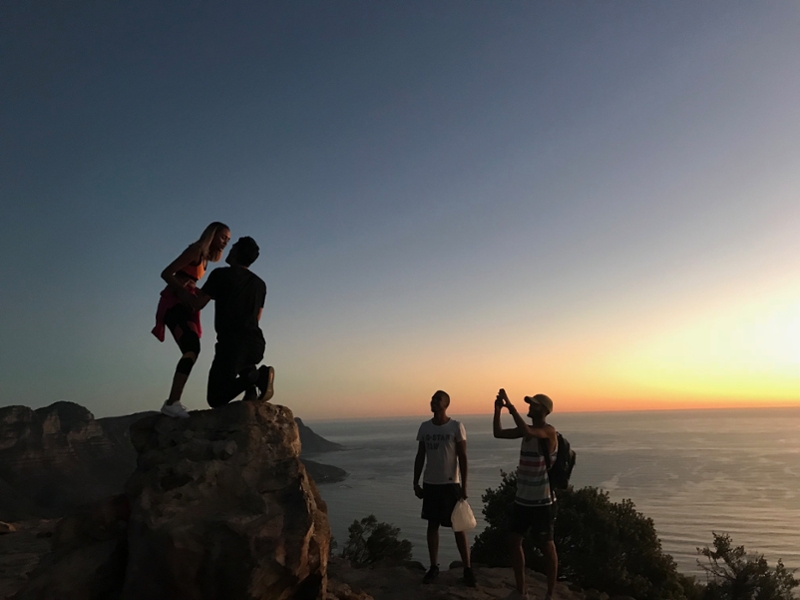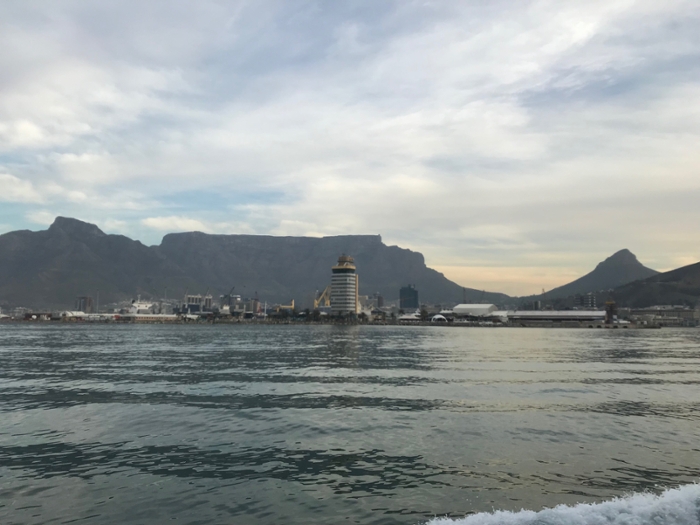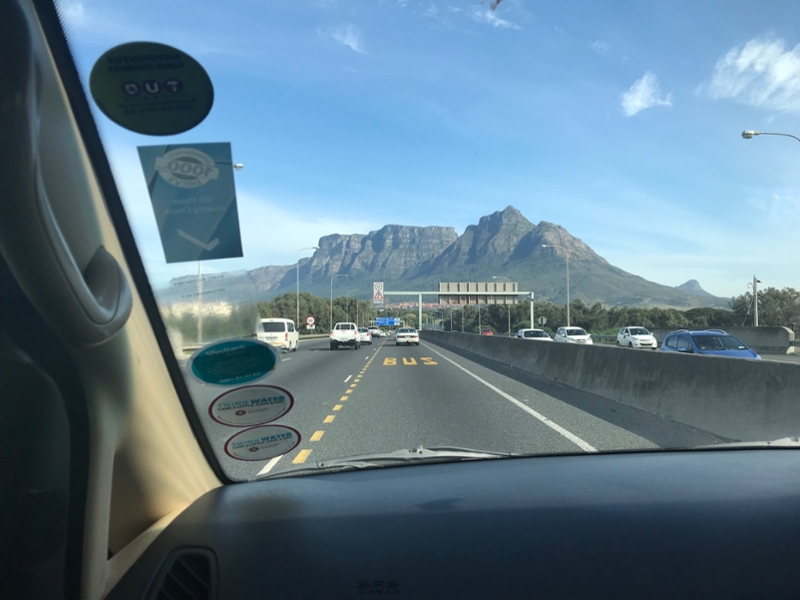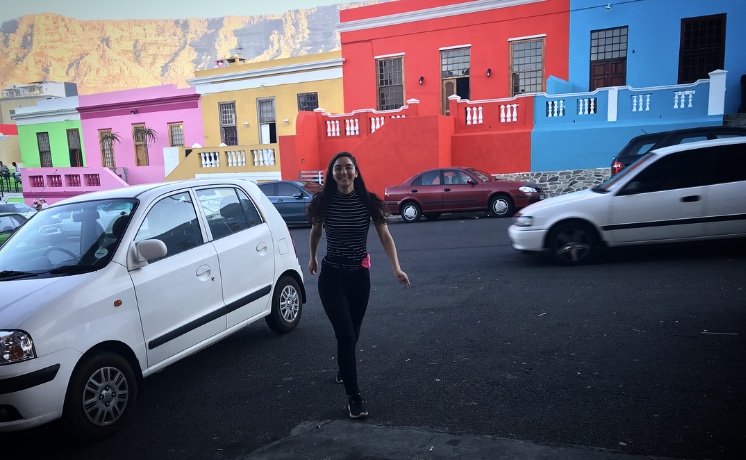Marriage Inequality in a Beautiful City

A Proposal on Lion’s Head
Tuesday I invited my new Malawi-American friend named Vitu for a sunset hike up Lion’s Head. Upon reaching the top, we were breathless both from the unexpected amount of rock climbing and the alluring 360 degree view of the mountains and ocean. At the top, two men began spreading petals on a rock near the center of the peak while hurriedly lighting candles. Another man lightly jogged towards them, picked up the red petals, and started tossing them around his girlfriend. He began singing “Happy Birthday to You” and the rest of us joined in. After dropping to one knee, he asked her to marry him. She said yes and he slipped the glistening diamond on her finger. It was a scene straight out of the most sickeningly-sweet romance film. On the way down, the new fiancé lit a joint and proudly proclaimed, “I got a great view, a great woman, and some great weed; what more can I want?” The young couple was originally from Johannesburg, but had moved to Cape Town about a decade ago. It was clear they loved Cape Town and each other, and as I scrambled down the dark mountain, I could not help but be enchanted by the brightly lit city center below.
A Constitutional Challenge: Section 6 of the Civil Unions Act 17 of 2006
Fast-forward to Thursday and I am in a day-long meeting for People Against Suffering and Oppression, PASSOP, the organization I am working with for the summer. PASSOP assists asylum seekers and refugees, many of whom have fled their home countries due to persecution based on their political views, sexuality, or gender. Because PASSOP participates in a lot of women’s rights and LGBTI+ advocacy, it was important for us to attend this meeting about civil unions for LGBTI+ members of the Cape Town community. Unfortunately, any fantasies of the beauty of marriage I had experienced a couple nights before were diminished by learning that although civil unions have been legal in South Africa since 2006, there are still major obstacles for the LGBTI+ community in completing these unions due to the bureaucratic nightmare that is the Department of Home Affairs.
One significant obstacle to legal recognition of LGBTI+ partnership is Section 6 of the Civil Unions Act 17 of 2006. This section allows workers to refuse to offer services to LGBTIQ+ members because of their “conscious.” A speaker who was part of the Triangle Project, an organization that researches LGBTI+ issues in South Africa, announced that around thirty to forty percent of Home Affairs workers have refused to give same-sex marriage licenses. The organizations represented in the room had advocated for a Constitutional challenge to the section that is now before the Court. The arguments presented for the amendment included: (1) South Africa is a secular state, (2) a civil union is a public service and the workers are public servants so they should not have the right to refuse this duty, (3) it is a human right to be in a civil union, (4) the government should prevent the affordability and access issues presented by allowing refusals, and (5) government workers have a commitment to non-discrimination against sexual orientation. Arguments presented in court against the amendment were that you cannot discriminate against religious beliefs due to freedom of religion in the South African Constitution and that there are implications for the worker’s own spirituality if they are not allowed to opt out of doing the paperwork for the civil unions.

Pride Shelter, a group in Cape Town providing services to LGBTI+ people in crisis, sided against the amendment because they argued that the Civil Union Act should be edited in its entirety and be part of a marriage act. This room, composed of a majority LGBTI+ Black women and a few LGBTI+ Black men, white men, and white women, thought that Pride Shelter’s response was ignorant of the current conditions faced by Black, “Colored” (this term is used regularly in South Africa to describe mixed-race persons and does not carry the same offensive connotation as in the States), and refugee LGBTI+ people. These groups are often marginalized and many live in the outskirts of the city in townships. I will go more in depth into townships in a later post, but for the purposes of this marriage and civil union discussion, the important thing to note is that people living in townships are often refused civil unions more than those in the city. This is due in part because of the ideals of the government workers in the townships and also because marginalized groups face greater accessibility obstacles. One example of an accessibility issue is when officials wrongly instruct couples to go to a different location, which could be three hours away, to get a signature before they return back and are allowed to have a ceremony. Another obstacle that a Black lesbian pastor on the panel detailed was that the forms in the townships still say husband and wife, so sometimes a lesbian couple will have to choose who will become the husband. Not only is this an obvious form of discrimination, but it also causes logistical challenges. When the civil union ID states that the person is a male, while their ID will say they are a female, it causes a lot of confusion and can even put the person whose identification does not match at risk. Furthermore, for both LGBTI+ people in the townships and in the city, there are private venues that are acting illegally by refusing to marry same-sex couples.

Exploring the City
Although my blog post will be centered around the work I am doing at PASSOP, I would also like to mention how much fun I am having wandering around this beautiful city. This week I visited Robben Island to see the cell Nelson Mandela was forced to stay in for eighteen years, eaten delicious, healthy (and inexpensive) food and coffee at the shops around town, dipped my toes in the ocean at Camps Bay Beach, pranced by the vibrantly colored houses in Bo Kaap, visited the art museum and saw a heartbreaking and gorgeous exhibit on Trans sex workers in the city, and hung out with local Capetonians around town. I am learning so much about Cape Town’s relationship to race, religion, and languages that it is overwhelming in a tremendous way. I would like to thank the wonderful William and Mary alums who have supported me on this trip and to Professor Warren for putting on this program. Also, special shoutout to Professor Zick and my TA Logan for teaching me Con Law because that was really helpful for work this week.
